Motorcycle Prices in Nigeria: New vs. Used – A Comprehensive Guide for 2025
If you’re a Nigerian looking to buy a motorcycle, whether for personal use, business, or as a means of transportation, you’ve probably asked yourself: “Should I buy a new or used motorcycle?” The decision isn’t always straightforward, especially when you consider factors like budget, durability, and maintenance costs.
At The Price, we understand how important it is to make informed financial decisions. That’s why we’ve put together this detailed guide to help you navigate the motorcycle market in Nigeria. Whether you’re eyeing a brand-new bike or a fairly used one, this article will break down the prices, pros, and cons of each option. Let’s dive in!
Why Motorcycles Are Popular in Nigeria
Before we get into the nitty-gritty of prices, let’s talk about why motorcycles are such a big deal in Nigeria.
- Affordability: Compared to cars, motorcycles are relatively cheaper to buy and maintain.
- Fuel Efficiency: With the rising cost of fuel, motorcycles are a more economical option for daily commuting.
- Mobility: Motorcycles can easily navigate Nigeria’s notorious traffic and bad roads, making them a practical choice for many.
- Business Opportunities: Many Nigerians use motorcycles for commercial purposes, such as ride-hailing (okada) or delivery services.
With these benefits in mind, it’s no wonder that motorcycles are a common sight on Nigerian roads. But the big question remains: Should you buy new or used?
New Motorcycles in Nigeria: Prices and Options
Buying a new motorcycle comes with its perks. You get a bike that’s fresh out of the factory, with no prior wear and tear. Plus, you often get a warranty and after-sales service. However, new motorcycles can be pricey, and the cost varies depending on the brand, engine capacity, and features.
Popular New Motorcycle Brands and Their Prices (2025)
Here’s a breakdown of some popular motorcycle brands in Nigeria and their current prices:
- Honda Motorcycles
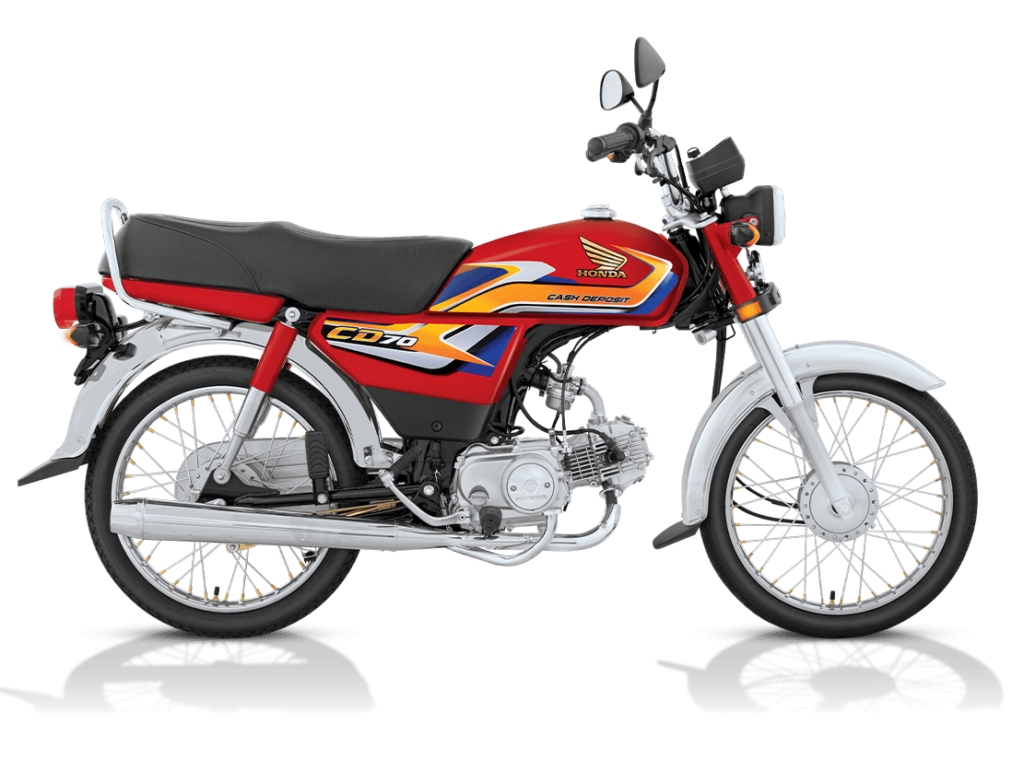
- Honda CG 125: ₦1,200,000 – ₦1,500,000
- Honda CB 190: ₦1,800,000 – ₦2,200,000
- Honda CRF 250L: ₦2,500,000 – ₦3,000,000
2.Yamaha Motorcycles
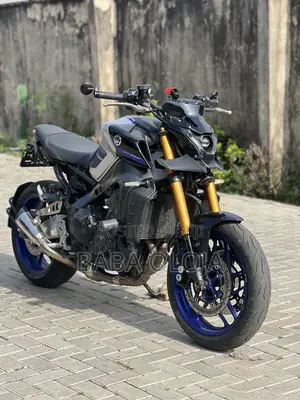
- Yamaha YBR 125: ₦1,300,000 – ₦1,600,000
- Yamaha XTZ 125: ₦1,700,000 – ₦2,000,000
- Yamaha R1 (Sport Bike): ₦4,500,000 – ₦6,000,000
3.Bajaj Motorcycles
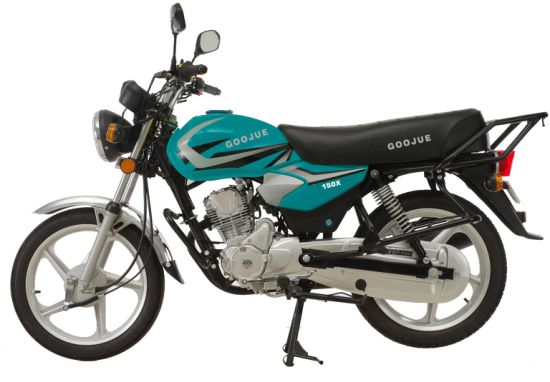
- Bajaj Boxer BM 150: ₦900,000 – ₦1,200,000
- Bajaj Pulsar NS 200: ₦1,500,000 – ₦1,800,000
4.TVS Motorcycles
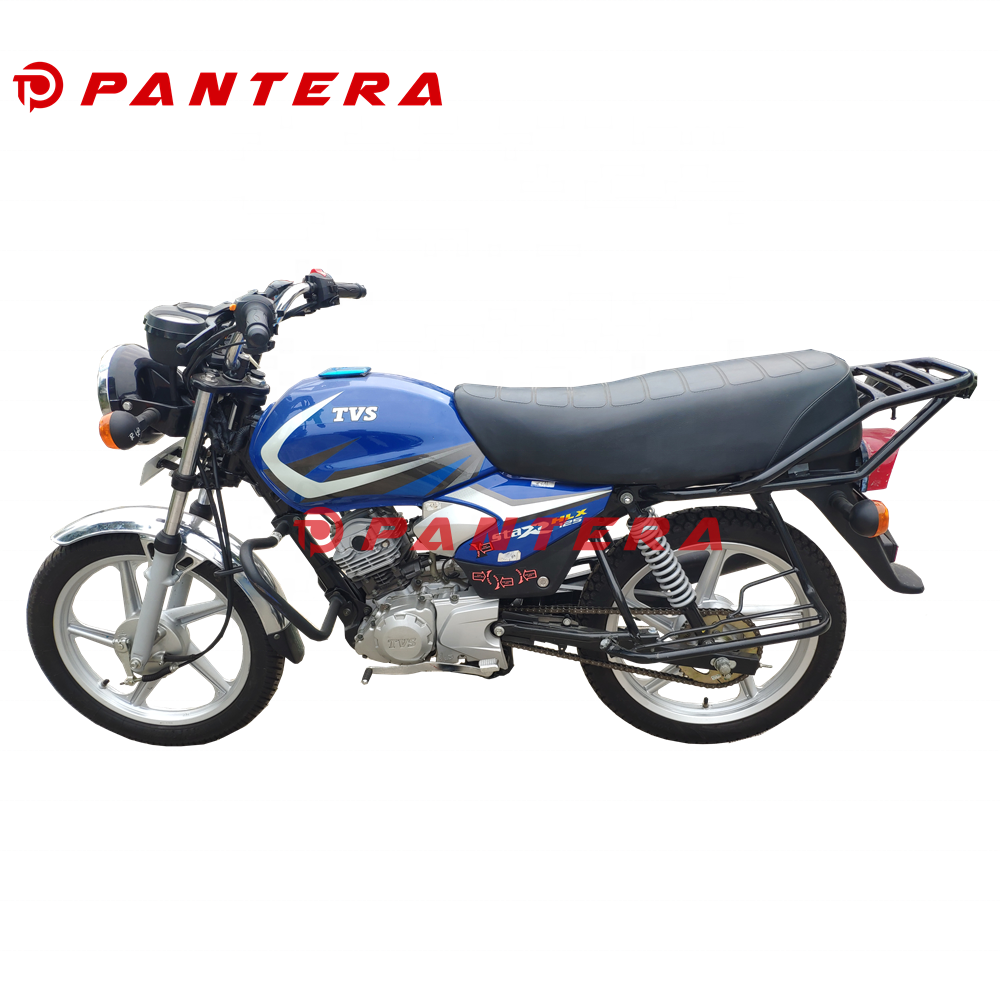
- TVS Star 100: ₦700,000 – ₦900,000
- TVS Apache RTR 200: ₦1,400,000 – ₦1,700,000
5.Suzuki Motorcycles

- Suzuki GSX-R150: ₦1,600,000 – ₦2,000,000
- Suzuki DR-Z400SM: ₦2,800,000 – ₦3,500,000
Note: Prices may vary depending on the dealer, location, and availability.
Pros of Buying a New Motorcycle
- Reliability: New bikes are less likely to break down.
- Warranty: Most new motorcycles come with a manufacturer’s warranty.
- Modern Features: New models often have advanced features like fuel injection, ABS, and better fuel efficiency.
Cons of Buying a New Motorcycle
- High Cost: New motorcycles are significantly more expensive than used ones.
- Depreciation: The value of a new bike drops as soon as you ride it off the lot.
Used Motorcycles in Nigeria: Prices and Options
If you’re working with a tight budget, buying a used motorcycle might be the way to go. However, you need to be careful to avoid buying a “tokunbo” (imported used) bike that’s on its last legs.
Popular Used Motorcycle Brands and Their Prices (2025)
Here’s what you can expect to pay for used motorcycles in Nigeria:
- Honda Motorcycles
- Used Honda CG 125: ₦400,000 – ₦700,000
- Used Honda CB 190: ₦800,000 – ₦1,200,000
- Yamaha Motorcycles
- Used Yamaha YBR 125: ₦500,000 – ₦800,000
- Used Yamaha XTZ 125: ₦900,000 – ₦1,300,000
- Bajaj Motorcycles
- Used Bajaj Boxer BM 150: ₦300,000 – ₦500,000
- Used Bajaj Pulsar NS 200: ₦700,000 – ₦1,000,000
- TVS Motorcycles
- Used TVS Star 100: ₦250,000 – ₦400,000
- Used TVS Apache RTR 200: ₦600,000 – ₦900,000
Note: Prices depend on the bike’s condition, mileage, and age.
Pros of Buying a Used Motorcycle
- Affordability: Used bikes are much cheaper than new ones.
- Lower Depreciation: The previous owner has already absorbed the initial depreciation.
- Variety: You can find a wide range of models and brands in the used market.
Cons of Buying a Used Motorcycle
- Maintenance Costs: Used bikes may require frequent repairs.
- No Warranty: Most used motorcycles are sold “as-is.”
- Risk of Fraud: You could end up with a stolen or poorly maintained bike if you’re not careful.
Additional Costs of Owning a Motorcycle in Nigeria
When budgeting for a motorcycle, it’s important to consider the additional costs that come with ownership. These expenses can add up, so it’s best to plan ahead:
- Insurance:
- Third-party insurance is mandatory in Nigeria and costs between ₦5,000 and ₦20,000 annually, depending on the bike’s value and coverage.
- Comprehensive insurance, which covers theft and damage, can cost ₦30,000 to ₦100,000 or more per year.
- Registration and Licensing:
- Registering a new motorcycle with the government costs between ₦10,000 and ₦20,000.
- Obtaining a rider’s license costs around ₦10,000 to ₦15,000, depending on the state.
- Maintenance and Repairs:
- Regular servicing costs between ₦5,000 and ₦20,000, depending on the bike’s model and condition.
- Spare parts like tires, brake pads, and chains can cost anywhere from ₦10,000 to ₦50,000 or more.
- Fuel Costs:
- With fuel prices hovering around ₦700 to ₦900 per liter in 2025, fuel efficiency is a major consideration.
- For example, a Honda CG 125 can travel up to 40-50 km per liter, making it a cost-effective option.
- Security:
- Investing in a good quality lock or alarm system can cost between ₦5,000 and ₦20,000.
- Some riders also opt for GPS trackers, which cost around ₦15,000 to ₦50,000.
Top Motorcycle Dealers and Markets in Nigeria
If you’re looking to buy a motorcycle, here are some trusted dealers and markets where you can find both new and used bikes:
- Lagos:
- Mandilas Motors: One of the leading dealers of new Honda motorcycles in Nigeria.
- ASPAMDA Market (Trade Fair Complex): A popular spot for used motorcycles and spare parts.
- Abuja:
- Nigerian Motors: Known for selling new and used Yamaha and Suzuki motorcycles.
- Kugbo Mechanic Village: A hub for affordable used bikes and repairs.
- Kano:
- Kano Motorcycle Market: A bustling market for both new and used motorcycles, especially Bajaj and TVS models.
- Port Harcourt:
- Ikoku Spare Parts Market: A great place to find used motorcycles and spare parts.
Tip: Always verify the credibility of the seller and inspect the bike thoroughly before making a purchase.
Financing Options for Motorcycle Buyers
If you can’t afford to pay for a motorcycle upfront, there are financing options available in Nigeria:
- Dealer Financing:
- Some motorcycle dealers offer installment payment plans, allowing you to pay for the bike over 6 to 12 months.
- Interest rates typically range from 10% to 20%.
- Bank Loans:
- Many Nigerian banks offer personal loans that can be used to purchase a motorcycle.
- Interest rates vary but usually fall between 15% and 25%.
- Microfinance Institutions:
- Organizations like LAPO and other microfinance banks provide loans for small business owners, including okada riders.
- Interest rates can be higher, sometimes up to 30%.
- Ride-Hailing Companies:
- Companies like MAX and Gokada sometimes offer motorcycles on hire-purchase to their riders.
- You pay a deposit and then make monthly payments until the bike is fully yours.
Common Scams to Avoid When Buying a Motorcycle
The motorcycle market in Nigeria is not without its risks. Here are some common scams to watch out for:
- Stolen Bikes:
- Always verify the bike’s ownership documents and cross-check the chassis number with the National Vehicle Identification System (NVIS).
- Odometer Tampering:
- Some sellers roll back the odometer to make the bike appear less used. Look for signs of wear and tear that don’t match the mileage.
- Fake Dealers:
- Be cautious of online sellers who ask for upfront payments without allowing you to inspect the bike.
- Cloned Bikes:
- Some motorcycles are cloned to look like popular models. Always buy from reputable dealers or sellers.
Environmental Impact of Motorcycles in Nigeria
While motorcycles are a convenient mode of transportation, they also have environmental implications:
- Air Pollution:
- Many motorcycles in Nigeria run on two-stroke engines, which emit harmful pollutants.
- Switching to four-stroke engines or electric motorcycles can reduce emissions.
- Noise Pollution:
- Loud exhaust systems contribute to noise pollution, especially in urban areas.
- Electric Motorcycles:
- Electric bikes are gaining popularity in Nigeria due to their eco-friendliness and low running costs.
- Brands like MAX and Jet Motors offer electric motorcycles priced between ₦1,500,000 and ₦3,000,000.
Frequently Asked Questions (FAQs)
- What is the most affordable motorcycle in Nigeria?
- The TVS Star 100 and Bajaj Boxer BM 150 are among the most affordable options, with prices starting at ₦700,000 for new models.
- How much does it cost to maintain a motorcycle monthly?
- Maintenance costs vary but typically range from ₦5,000 to ₦20,000 per month, depending on usage and bike type.
- Can I use a motorcycle for commercial purposes in Nigeria?
- Yes, many Nigerians use motorcycles for ride-hailing (okada) and delivery services. However, some states have restrictions on commercial motorcycle operations.
- What is the lifespan of a motorcycle in Nigeria?
- With proper maintenance, a motorcycle can last 5 to 10 years or more.
- Are electric motorcycles worth it in Nigeria?
- Electric motorcycles are more expensive upfront but save money on fuel and maintenance in the long run.
Conclusion: New vs. Used Motorcycles – Which Should You Buy?
The choice between a new and used motorcycle ultimately depends on your budget and needs. If you can afford it, a new bike offers peace of mind with its reliability and warranty. However, if you’re on a tight budget, a well-maintained used motorcycle can be a great alternative.
At The Price, we recommend doing thorough research and inspecting any bike (new or used) before making a purchase. Don’t forget to factor in additional costs like insurance, registration, and maintenance.
Whether you’re cruising through Lagos traffic or using your bike for business, we hope this guide has given you the information you need to make an informed decision. Ride safe, and don’t forget to check back on The Price for more money-saving tips and price guides!

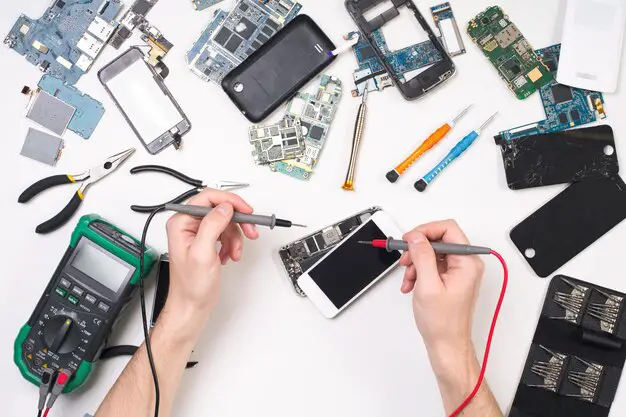
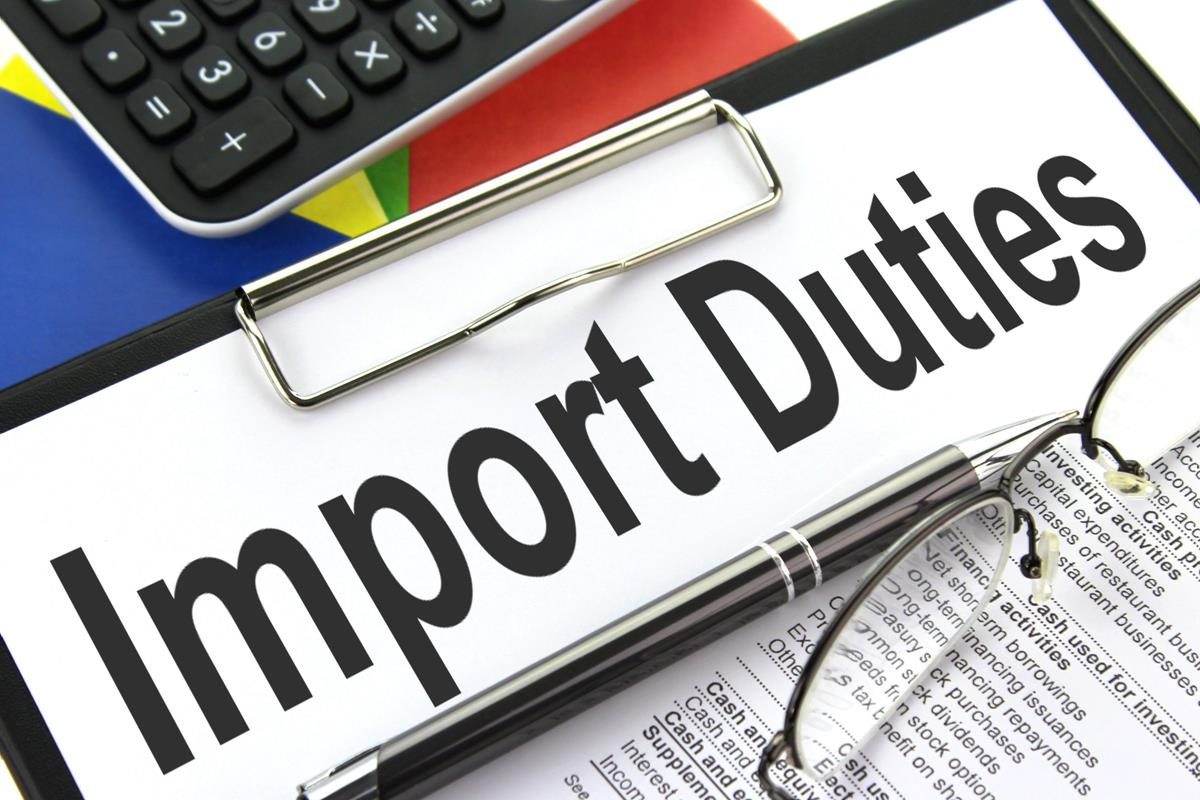
Leave a Comment